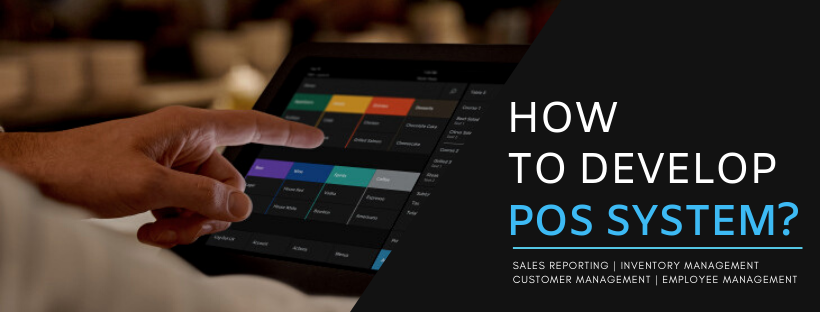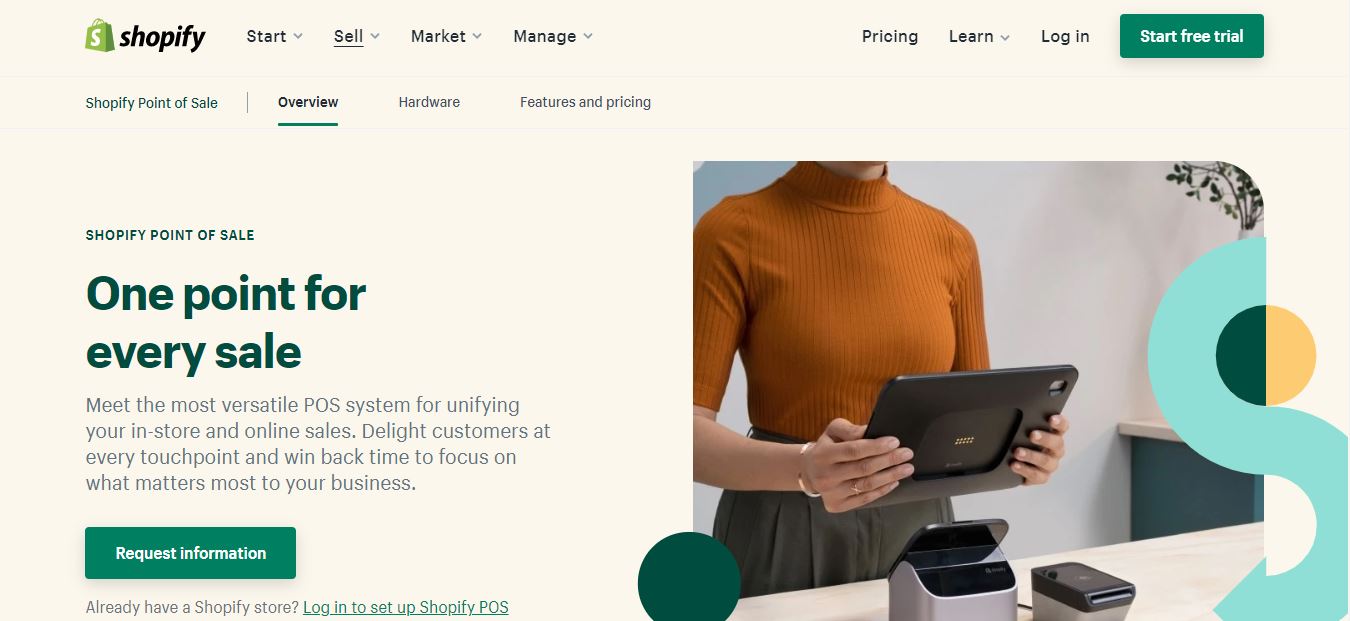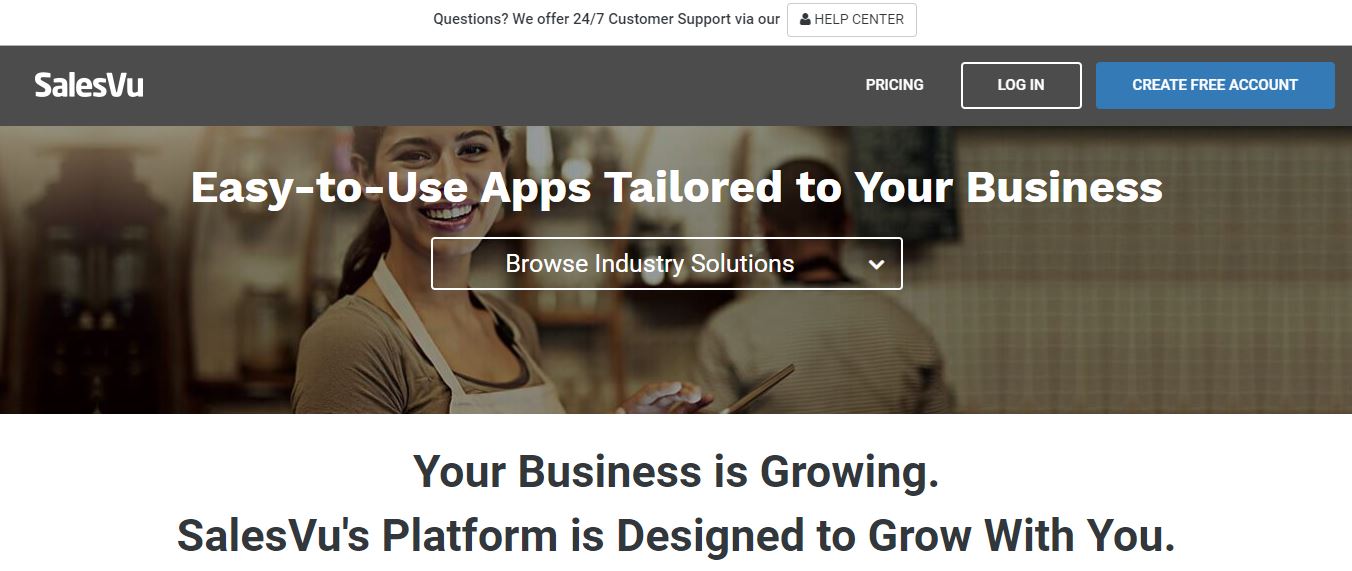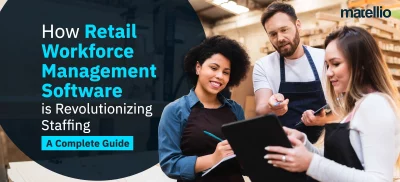
Do you own a retail shop? Well, then you might be aware of the value of an efficient POS system. The use of POS has drastically increased in the last few years in the retail and restaurant industry. With a transaction value of around 745,796 million, the POS system development outreached the digital payments segment. While a POS system serves to handle customer purchase and payments, an efficient and hassle-free POS does more than that. With the latest advances in technology, POS system developers also upgraded traditional POS systems to cater to the needs of modern users. Today, the POS system, besides basic features, also offers some advanced functionalities like sales tracking, inventory management, reward allocations, and much more. So, whether you’ve started or reached a certain level, you will still need a smart POS system developers for your retail business. However, make sure you select the right type of POS system developers to ensure maximum profits for your business. For that, there are several factors to be considered; one of them is to choose among terminal or mobile or cloud-hosted POS systems.
Different Types of Point of Sale Systems
1. Mobile POS
Mobile POS is also known as mPOS, and work efficiently to serve small retail businesses and ready to serve restaurants. It has the immense capability to integrate other devices such as receipt printers, barcode scanners, etc. to it. mPOS offers great functionalities like inventory management, sales management, report generation, as and when required.
2. Terminal POS
Terminal POS is an advanced version of mPOS. It is a computer with all the necessary peripherals like card readers, barcode scanners, and receipt printers attached to it. That is quite popular among big retail markets such as grocery stores, electronics stores, departmental stores, and so on. Besides managing inventory and sales, terminal POS also comes with built-in CRM to enhance CX.
3. Cloud-Hosted POS
Cloud-hosted POS systems are popular among startups as they have added functionalities of terminal POS. These types of POS do not run on a local server, so it becomes easy to handle them. Apart from simplicity, they are also cost-effective and flexible.
Read More: Discover how Retail POS Software Development can revolutionize your sales operations, enhance customer experiences, and drive business growth.
How To Choose The Right POS?
Depending on your business type, you need to choose the right kind of POS for getting desired outputs. Like, for instance, if you do not have much space, then you opt for mobile POS as they are portable and have all the essential features to make your work easy. And if you are a significant retail market, then you can go for either terminal POS or cloud-based POS to enjoy advanced functionalities. Whatever your need may be, always try to opt for the most efficient solution for your business.
What Are The Benefits of Using Point of sale system?
There are several benefits of including a POS system in your business. A proficient POS offers you valuable data like customer purchase history, inventory level, sales reports, and much more to make your work more efficient. Apart from that, some other benefits of POS are-
1. Speeds up your work
2. Increases productivity
3. Reduces costly overheads
4. Saves a lot of crucial time
5. Improves customer experience
6. Increases traffic in your store
7. Improves your relationship with vendors
8. Assist you in marketing your business
5 Best Pos Systems In The Market
While talking about the benefits of the POS, let’s have a look at some top POS Systems prevailing in the market.
1. Square POS

One of the top leading POS systems in the market is Square POS. It offers an intuitive dashboard that allows you to make transactions quickly. Square offers a free iPad POS solution that helps to manage inventory, sales, and customer purchase effectively. Besides that, it also provides a retail-specific system for handling large stores and markets.
Features
- Unlimited Staff Permissions
- Customer Profile
- Reporting and Analytics
2. Shopify POS

Shopify POS system is one of the most prominent POS available for eCommerce companies. It offers excellent benefits to its users by providing them with their branded store and other online sales channels like social media. Shopify POS is suitable for a business that deals in both online and offline mode. Its mobile app also comes with 24/7 support and live chat options.
Features
- Sales Management
- Discount Coupons
- Online Store
3. Vend POS

A robust feature of Vend POS system is that it enables its users to add functionalities beyond those provided by the Vend’s POS. Other features of Vend includes inventory management, sales management, split payments, gift cards, and so on. It can be easily operated on Mac and iPads, with other third-party add-ons.
Features
- Intuitive Interface
- Mobile App
- Customer Marketing Tool
4. Lightspeed POS

Lightspeed POS system is most suitable for performing complex inventory calculations in less time. It allows users to import items from the catalogue, group items by type, and add details such as colour, price, size, and so on. It can seamlessly run on desktop or iPad, and mostly includes hardware components like scanners, printers, cash drawers, etc.
Features
- Free Onboarding Webinars
- Inventory Management
- Integrated Library
4. SalesVu POS

Unlike the other POS systems, SalesVu provides a suite of apps, that handle different aspects of POS like inventory, sales, customer, and so on. It also offers an intuitive dashboard so that the user can seamlessly manage all the operations from a central system. A business may need two to three SalesVu app to work smoothly.
Features
- Loyalty App
- Gift Card App
- Invoice App
Must Have Features In POS System
Now that you’re convinced about introducing POS system development in your business, let’s quickly discuss the essential features of an ideal POS system.
1. Stock Management
Keeps a record of all of your items and also give the user insights on stock management. It also helps to determine when and how often to order products.
2. Sales Monitoring and Reposting
It generates sales reports, capture sales trends and makes a business forecast based on sales trends. It even helps you see which products perform well and which don’t.
3. Pricing
Efficiently track price variations to plan your promotions accordingly, so that the appropriate price is applied automatically, reducing the errors.
4. Multiple Payment Methods
This feature goes beyond traditional payment methods and allows you to accept mobile payments and even provides a split payment option for your customers.
5. Bills and Orders
Generate bills quickly and process the order easily using a POS system that makes invoicing and payments a breeze.
6. Return Management
Executes user-friendly return policy with easy returns/refunds and replacements, create multiple returns for one sales order along with the reason for return.
7. Customer Relation Management
Collects valuable customer data that can provide insights on which customer would be interested in your sale that helps to make an effective loyalty program.
8. Loyalty Programs and Gift Cards
Track customer loyalty incentives and manage gifts. That helps to improve customer retention by giving out store points every time a customer makes a purchase.
9. Security
Security is a crucial aspect in any system to protect the integrity and sensitive data of the user; your POS system developers should comply with the Payment Card Industry Data Security Standards.
10. Strong Reporting
Having powerful reports of each department keeps you updated about what work is going on and what needs to be done. It also facilitates the growth of your business by providing valuable data on trends, opportunities, and bottlenecks in your industry.
11. Multi-Unit Management
Even if you are operating a single franchise unit, go for multi-unit management feature. That’s because if after some years you decide to add more groups in your franchise, you can manage them easily through multi-unit management feature.
How Much Will It Cost To Develop POS System?
Finally, we are in the last section of our article discussing the costings involved while investing in an effective POS system development. Like other software solutions, the cost for a POS system development also depends on several factors. To break down
1. Complexity in the Project
It includes the features that you have decided and the customization if any.
2. Platform Selection
In mobile app development, you have two platforms for your product, Android, and iOS. You can select any of the options as per your need. Most of the POS system developer focus on providing both the platforms to target a larger audience.
3. UI/UX Development
It includes all the aspects related to UI/UX development, such as making the dynamic, intuitive features, more responsive app, and so on.
4. Website Connectivity
It includes the costings involved in integrating your mobile app to your website.
5. App Store Optimization
Cost to submit your app on the Play Store or the App Store.
Conclusion
Things are changing rapidly in this fast-moving technological era. What was once the trend has now become a part of the global market. In such a digital world, relying on existing technologies may seem a little passive. That’s why you should always consider revamping your existing POS systems with more advanced techniques to gain maximum profits. So, leverage the above points and transform your retail business into a profitable venture.



